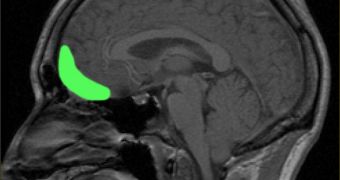A group of investigators announces the discovery of a new method for reducing impulsivity in patients. Experts with the team say that applying small, low-intensity electrical shocks to the skull can lead to this effect.
Just to be clear, the scientists do not argue for standard shock therapy. That type of treatment is extremely invasive, and oftentimes lead to unwanted side-effects in the patients. The new approach is significantly different.
The research team advises doctors to move away from standard shock therapy, and rely instead on the stimulation of the actual skull. This eliminates the need for intrusive surgery and complex procedures.
Deep-brain stimulation is another widely-used research and treatment method. In it, the skull is opened and small electrodes are placed at key points in the patient's brain. Whenever needed, these electrodes emit small-intensity electric shocks to the desired areas.
But this approach requires the opening of the skull. Researchers at the University of Taiwan are proposing a new way of obtaining the same effect. Their non-invasive technique delivers electricity directly to the head of a patient, rather than his or her brain.
This type of mild electrical stimulation is apparently very effective in helping people keep their more impulsive sides under control. For some, this is a real problem, one that reduces their quality of life, and makes it difficult for them to live normal lives.
In a paper published in the latest issue of the esteemed scientific journal Neuroimage, the UT team describes how the new method functions. The most important thing about it is that it relies on using only low-intensity electricity, applied directly to the skin of the scalp.
A 10-minute session is all that's required to produce discernible effects, the research team says. Test subjects' ability to process responses was significantly improved following the tests, researchers say.
They interpreted the study results as the new method being capable of effectively and quickly jump-starting the brain’s innate ability to control impulsivity, PsychCentral reports.
“The findings that electrical stimulation to the brain can improve control of their behavioral urges not only provide further understanding of the neural basis of inhibitory control but also suggest a possible therapeutic intervention method for clinical populations, such as those with drug addictions or ADHD, in the future,” Chi-Hung Juan, PhD, says.
The neuroscientist was the leader of the research team that carried out the new investigation.

 14 DAY TRIAL //
14 DAY TRIAL //